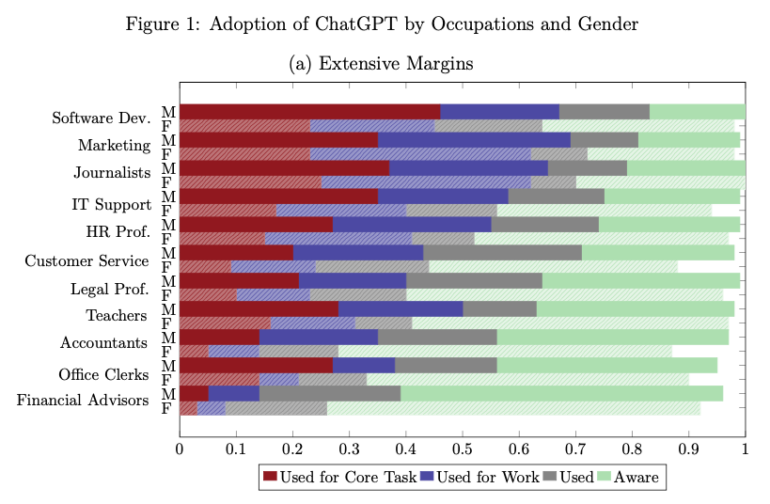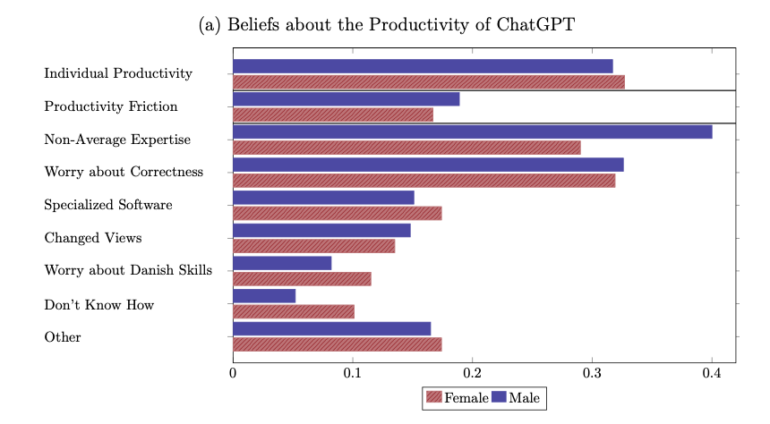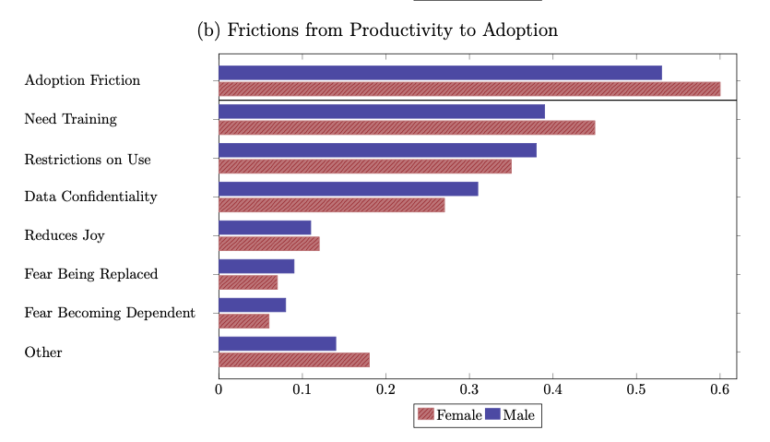Why do women use AI less than men?

Multiple studies reveal that women use generative AI tools like ChatGPT significantly less often than men. The reasons for this are diverse.
Women use generative AI such as ChatGPT less frequently than men, according to several recent studies. A survey by the Universities of Copenhagen and Chicago among 100,000 employees in Denmark shows a 20 percentage point gap between genders.

A similar result comes from a global survey by Oliver Wyman, published in the World Economic Forum, among 25,000 adults. 59 percent of male employees aged 18 to 65 use AI tools at least once a week, but only 51 percent of women do. The difference is most significant among 18-24-year-olds, at 71 to 59 percent.
Gender-specific differences in AI-generated content
A UNESCO study on the bias of large language models (LLMs) like GPT-3 and Llama 2 also shows gender-specific differences in AI-generated content. In stories about men, words like "treasure," "woods," "sea," and "adventurous" dominated, while women were more often described with "garden," "love," "gentle," and "husband." Women were described in domestic roles four times more often than men.

The Danish study also provides explanations for the different usage: Many women state that they need training to use ChatGPT. Men, on the other hand, are more often deterred from using it by employer restrictions and concerns about data confidentiality.
An experiment by the researchers also shows that women are quite receptive to information about the productivity potential of generative AI. When informed about expert assessments on time savings, they adjust their beliefs even more strongly than men and are more likely to express the intention to use ChatGPT.

According to Oliver Wyman, 77 percent of employees would feel more comfortable using AI if their employer supported them. Interestingly, only 40 percent of managers believe their employees need this support. The researchers, therefore, recommend that companies offer comprehensive training during working hours, develop a shared vision for the future with AI, make IT teams more diverse, and involve the "digital natives" of Generation Z in the discussion.
UNESCO also sees a need for action. It calls for the implementation of the AI ethics code adopted in 2021. This includes specifically allocating funds to increase the participation of girls and women in STEM subjects and promoting women as AI entrepreneurs. Currently, only 20 percent of technical staff in leading AI companies are women, 12 percent of AI researchers, and 6 percent of software developers.
AI News Without the Hype – Curated by Humans
As a THE DECODER subscriber, you get ad-free reading, our weekly AI newsletter, the exclusive "AI Radar" Frontier Report 6× per year, access to comments, and our complete archive.
Subscribe nowAI news without the hype
Curated by humans.
- Over 20 percent launch discount.
- Read without distractions – no Google ads.
- Access to comments and community discussions.
- Weekly AI newsletter.
- 6 times a year: “AI Radar” – deep dives on key AI topics.
- Up to 25 % off on KI Pro online events.
- Access to our full ten-year archive.
- Get the latest AI news from The Decoder.